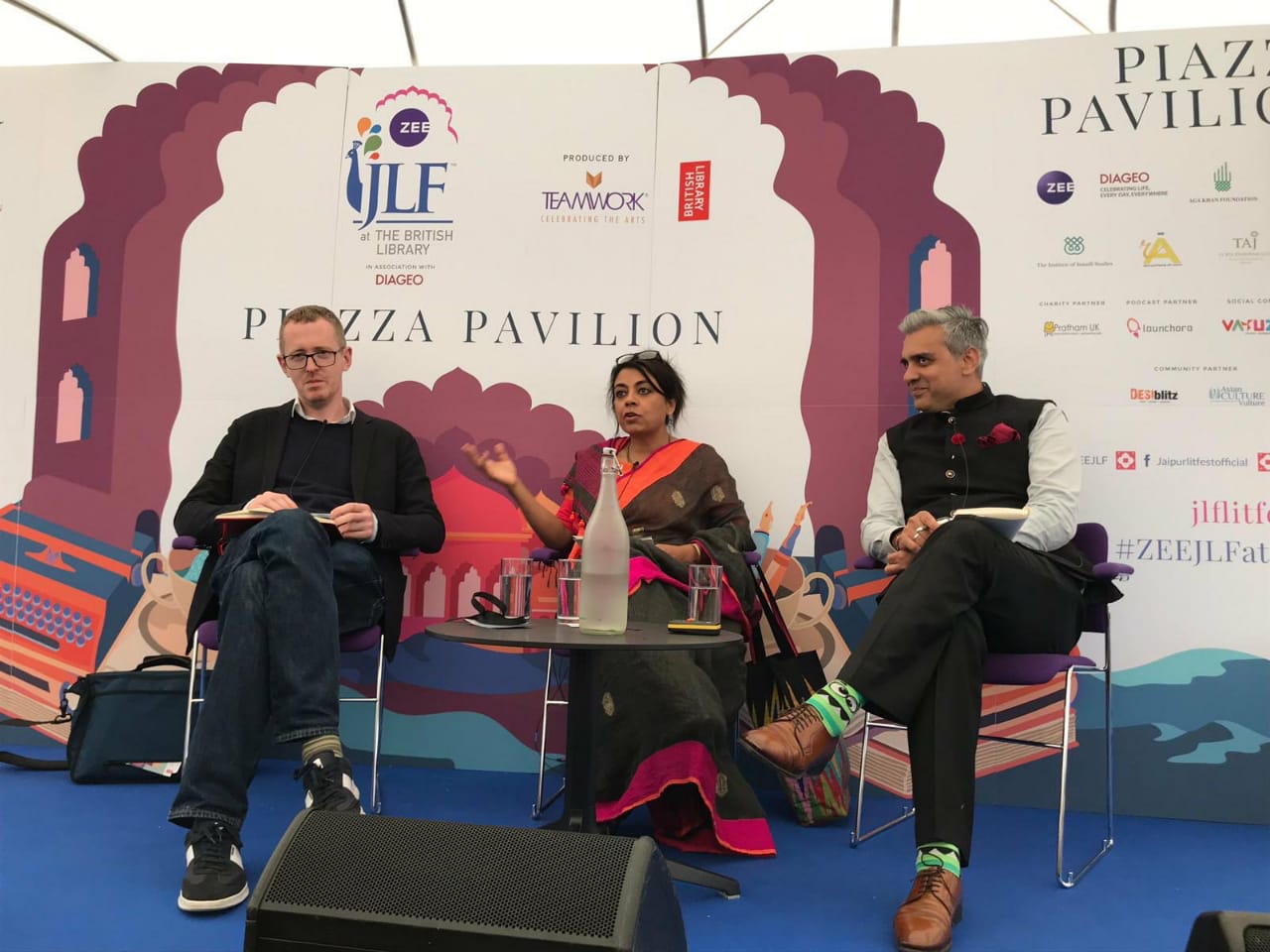


The Billionaires: Looking at the Indian Elite James Crabtree and Avi Singh in conversation with Mukulika Banerjee
Mukulika Banerjee opened this session by pointing out what we, the audience, already knew: the growth in the Indian economy has only benefited the top 20%; the rest of India has not done so well from it. For James Crabtree there was irony in discussing his book, The Billionaire Raj: A Journey Through India’s New Gilded Age in London, pointing out that the British elite fled to the hill stations in summer, just as the Indian elite now enter voluntary exile in the hill stations of Kensington and Chelsea.
The most colourful of the tycoons he interviewed for his book was Vijay Mallya, Indian businessman and a former member of the Upper House of the Parliament of India, now the ex-chairman of United Spirits, the largest spirits company in India. A figure Crabtree describes as Richard Branson meets Keith Richards, he interviewed Mallya in his gaudy house in Regents Park. A poster-child for corruption in India, Mallya along with the other billionaires interviewed, all seemed to share a sense of injustice, claiming to have been misunderstood: they see themselves as nationalists and builders of modern India, their only desire to be accepted as impressive businessmen in their own right.
Avi Singh, lawyer and professor specialising in criminal and transnational law, is ideally placed to evidence the premise that while not every Indian billionaire has made their money in the same industry, the corruption of the rule of law is the same. Banerjee countered this with a question about the benefits secured via corruption: can we see the extent of influence that can bought with money, for example by controlling media?
From Crabtree’s perspective, as anti-corruption law has been evolved, the tradecraft of corruption has changed. With an estimated $9 billion - the majority in illegal funds - spent in the most recent Indian election, this cannot all have come from entirely honest sources. Singh sees a tradecraft that is no linger artisanal and hence more difficult to identify, giving the party in power even greater control. Anti- corruption laws can be selectivity applied, directed at opposition forces and give the false impression that corruption has decreased, when this is clearly in fact not the case.

Leave a comment